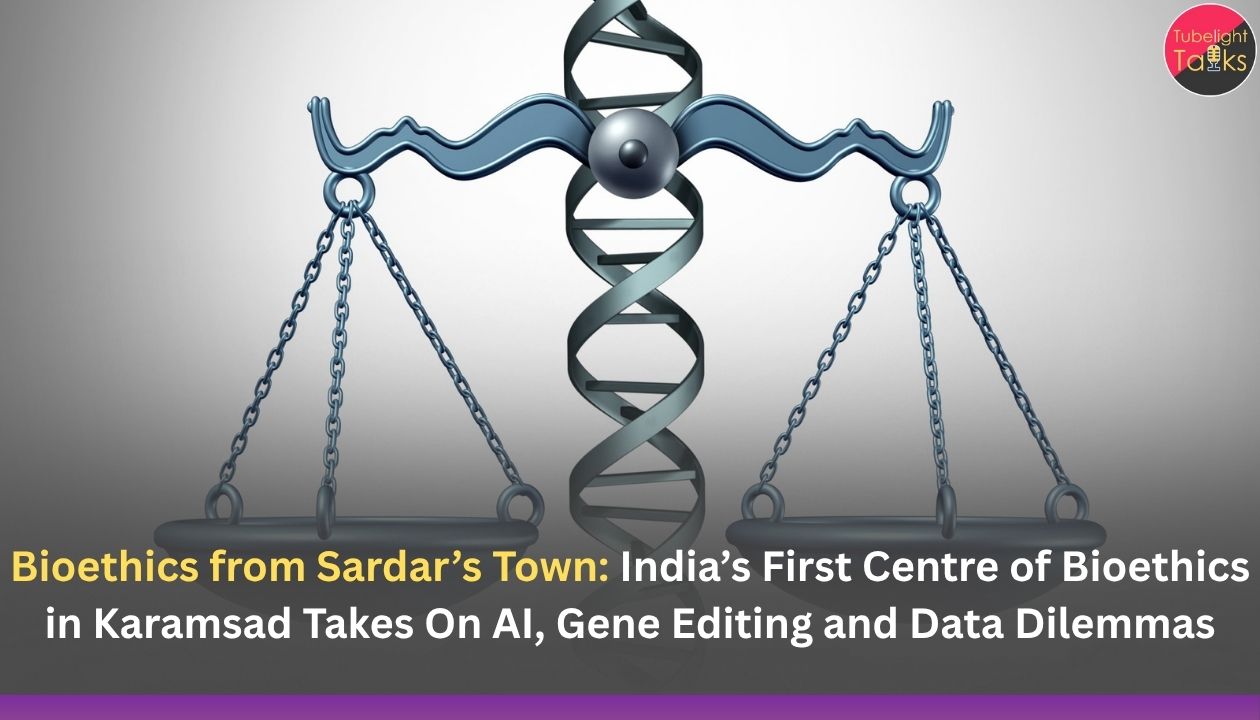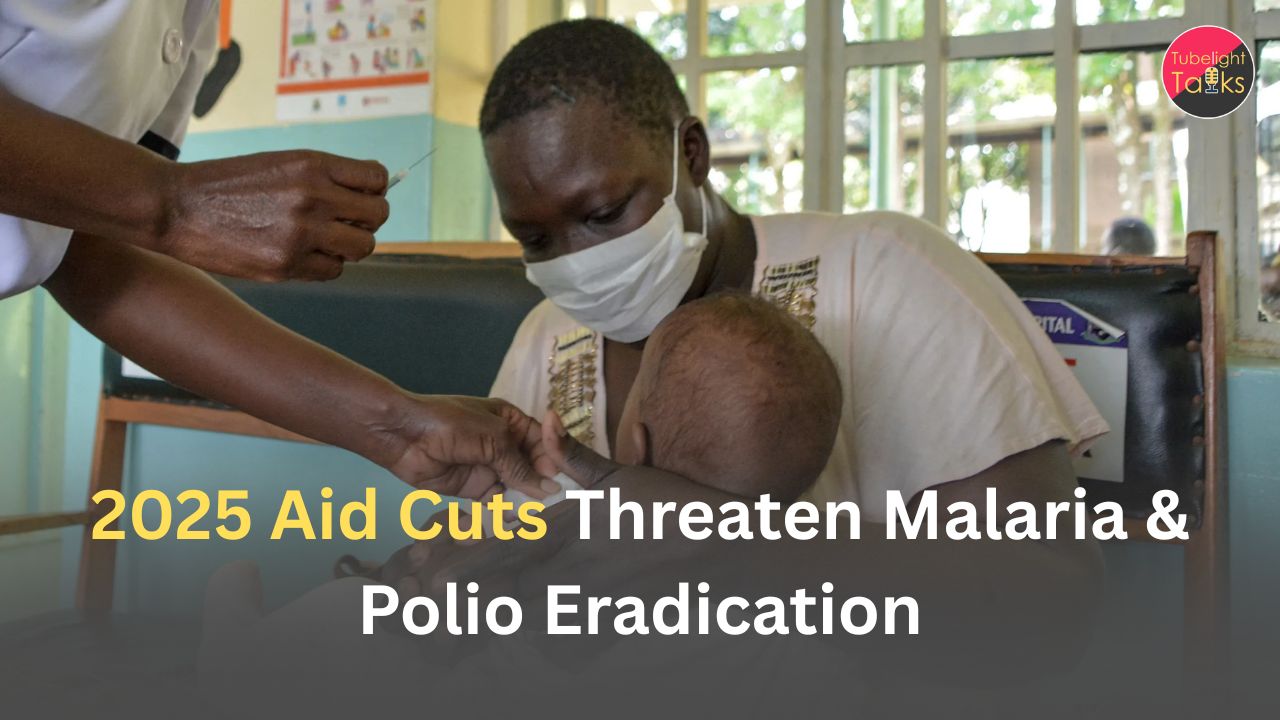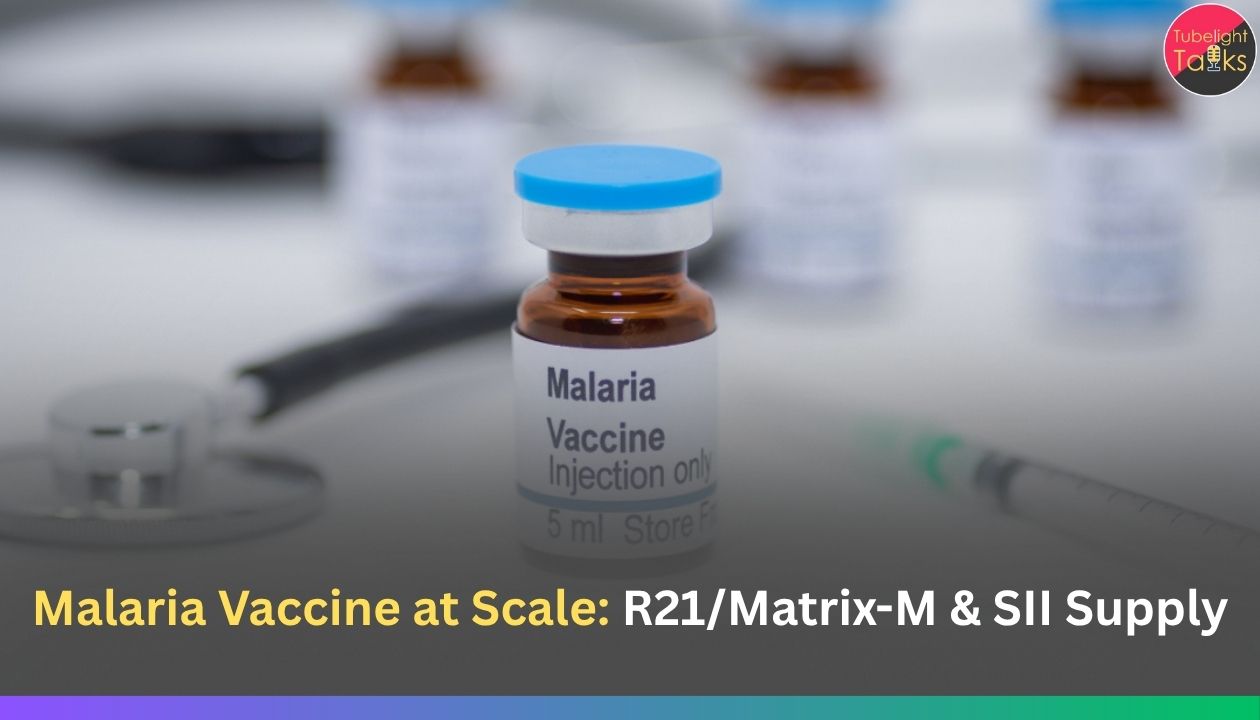Bioethics from Sardar’s Town: Karamsad, the small Gujarat town that shaped Sardar Vallabhbhai Patel, is now home to a very 21st-century legacy of ethics: India’s first dedicated Centre of Bioethics for healthcare. The centre has been launched at Bhaikaka University in Karamsad under the International Chair in Bioethics (ICB), Porto, Portugal, and is designed as a national hub to train doctors, nurses and allied health professionals to deal with the ethical, social and legal questions thrown up by AI in hospitals, gene editing, big data and life-support decisions.
From Sardar’s iron ethics to a modern ethics hub
Karamsad is known as the ancestral town of India’s “Iron Man”, Sardar Vallabhbhai Patel—remembered for his personal integrity and firm moral compass. Now, the same town is being positioned as a training ground for “ironclad ethics” in medicine. On Tuesday, Bhaikaka University formally inaugurated the Centre of Bioethics, making it the first such centre in India to focus on bioethics education across the entire spectrum of healthcare professions rather than only research ethics.
The university already hosts the Gujarat unit of the International Chair in Bioethics (earlier the UNESCO Bioethics Chair) and has worked on medical ethics modules in its Pramukhswami Medical College, nursing and allied programmes. The new centre builds on that base to create a structured, visible node for ethics training, collaboration and policy input.
What the Centre of Bioethics will do
According to faculty and programme details reported so far, the Centre is envisaged as a national resource hub with multiple roles:
- Teaching & training
- Certificate courses in bioethics for medical, nursing and allied health students
- Faculty development programmes and “train-the-trainer” workshops
- Support to colleges for integrating bioethics modules into MBBS, nursing and paramedical curricula
- Certificate courses in bioethics for medical, nursing and allied health students
- Support for hospitals
- Guidance and capacity building for hospital and institutional ethics committees
- Case-based workshops on clinical dilemmas such as ICU withdrawal, consent disputes and resource allocation
- Guidance and capacity building for hospital and institutional ethics committees
- Research & digital resources
- Research projects on ethical issues in AI-assisted diagnostics, genomics, reproductive technologies, big-data analytics and end-of-life care
- A digital repository of ethics case studies, position papers and teaching material for learners across India
- Research projects on ethical issues in AI-assisted diagnostics, genomics, reproductive technologies, big-data analytics and end-of-life care
- Collaboration
- Partnerships with national and international bioethics organisations
- Symposia, webinars and joint projects with bodies working on AI ethics, genetic research and health-data governance
- Partnerships with national and international bioethics organisations
Dr Barna Ganguly, a pharmacology professor at Pramukhswami Medical College associated with the initiative, has pointed out that while the National Medical Commission (NMC) has formally added ethics and professionalism to the medical curriculum, India still has an acute shortage of trained medical and clinical ethics faculty, which this centre aims to help address.
The new frontier: AI, gene editing and health-data in hospitals
The Karamsad centre is being launched at a time when global bioethics is being reshaped by new technologies far beyond classical doctor–patient dilemmas. Experts quoted around the launch highlight four areas that are now central to hospital ethics discussions:
- AI in healthcare
- Decision-support systems, radiology AI, sepsis alerts and generative tools are now in Indian hospitals and start-ups.
- Ethical concerns include bias in algorithms, explainability, over-reliance on AI outputs and accountability when things go wrong.
- Decision-support systems, radiology AI, sepsis alerts and generative tools are now in Indian hospitals and start-ups.
- Gene editing and genomics
- From cancer genomics to experimental gene therapies, India is slowly entering a space where editing the genome is technically possible.
- Questions arise around informed consent, long-term unknown risks, equity of access and impacts on future generations.
- From cancer genomics to experimental gene therapies, India is slowly entering a space where editing the genome is technically possible.
- Data privacy and health-data platforms
- Electronic medical records, national health IDs and AI training datasets raise issues of who owns the data, how it is shared and how it is anonymised.
- Electronic medical records, national health IDs and AI training datasets raise issues of who owns the data, how it is shared and how it is anonymised.
- End-of-life and ICU decisions
- As ventilators, ECMO and long-term ICU care expand, families and hospitals face difficult choices about continuing or withdrawing treatment, especially when outcomes are uncertain.
- As ventilators, ECMO and long-term ICU care expand, families and hospitals face difficult choices about continuing or withdrawing treatment, especially when outcomes are uncertain.
The Centre plans to anchor teaching, research and consultations around these emerging issues, in sync with global guidance documents such as the WHO’s ethics and governance of AI for health and India’s own ICMR ethical guidelines for AI in healthcare.
India’s bioethics gap: committees exist, capacity doesn’t
Multiple studies and policy reviews have flagged that while India has hundreds of ethics committees on paper, many lack trained members, clear SOPs and regular capacity building.
Key gaps include:
- Few clinicians and administrators formally trained in clinical ethics, beyond research-approval work.
- Ethics committees often functioning as “closed rooms” with limited transparency or patient participation.
- Very limited structured exposure to AI ethics, genomics or digital-health equity in standard medical teaching.
By embedding the Centre of Bioethics inside a full-spectrum health university (medicine, nursing, physiotherapy, public health and allied health), Bhaikaka University aims to create an ecosystem where ethics is not an afterthought but a cross-cutting competence for all healthcare workers.
Treating every life as a sacred trust
From a Satgyan-inspired lens, this development from “Sardar’s town” carries a deeper resonance. Sant Rampal Ji Maharaj repeatedly stress that the human body is a sacred trust from the Supreme, and anyone—doctor, policymaker, technologist—who touches that trust must act with absolute honesty, daya (compassion) and nyay (justice).
Seen this way, the Karamsad Centre of Bioethics is not just an academic project; it is an attempt to ensure that new powers in medicine—AI, gene editing, vast data—do not become new tools of exploitation or negligence. Satgyan would ask very pointed questions that align with bioethics:
- Are algorithms helping the weakest patient, or only the richest hospital?
- Is consent for gene tests truly informed, or buried in English legal text the patient cannot understand?
- Is patient data treated as “mine to monetise” or as “amanat” (entrusted wealth) to be guarded?
When an ethics centre trains doctors to speak truthfully to patients, resist pressure to over-treat for profit, question unfair AI or protocols, and stand up for those who have no voice, it quietly fulfils the spiritual command that service must never sacrifice conscience. In that sense, a robust bioethics culture can make hospitals not only more compliant, but more dharmic—places where technology is powerful, but truth and compassion remain in charge.
Also Read: Tele-ICU 2.0: AI Triage Meets Regulatory Guardrails as Hospitals Design Playbooks for 2026
FAQs: India’s first Centre of Bioethics launched in Karamsad to tackle AI
1. What exactly has been launched in Karamsad?
India’s first dedicated Centre of Bioethics for healthcare education and research, at Bhaikaka University in Karamsad, under the International Chair in Bioethics (ICB), Porto.
2. Why is this centre significant?
It aims to train healthcare professionals across medicine, nursing and allied fields in bioethics, focusing on real-world dilemmas created by AI, gene editing, big data and ICU care, at a time when India faces a shortage of trained ethics faculty.
3. What kind of activities will the Centre run?
Certificate courses, faculty-development and “train-the-trainer” programmes, workshops, support for hospital ethics committees, research projects and a digital repository of teaching material and case studies.
4. How does this relate to AI and gene editing?
The Centre plans to study and teach ethical issues around AI decision-support tools, genomics, reproductive technologies and health-data governance, aligning with international guidance like the WHO AI-for-health ethics framework and ICMR AI guidelines.
5. Why call this “bioethics from Sardar’s town”?
Karamsad is the ancestral town of Sardar Vallabhbhai Patel, famed for his integrity. Establishing a national bioethics hub here symbolically links Patel’s “iron” ethics with a modern effort to keep Indian healthcare ethical in an age of powerful new technologies.










